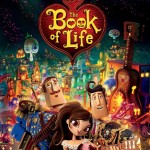Andrew Bowen is an angry, self-righteous asshole. That’s probably why we get along so well, and why his book, Project Conversion: One Man, 12 Faiths, One Year, is so powerful.
Full disclosure: Andrew’s blog, Project Conversion, began in 2011 and was one of the inspirations for me starting My Own Ashram. Through mutual blog reading and various discussions via Facebook he and I have become friends and allies in our spiritual journeys, though we’ve never met in person. When he asked me to review his book, I gladly said yes.
The book begins with the old angry Andrew. He had been an outspoken evangelical Christian in his teens and early twenties. The events of 9/11 kindled a fire of hatred toward Muslims. After a heartbreaking family loss through which his wife, Heather dove deeper into her Christian faith, he realized that he needed to root out his anger. In an act of desperate self-healing, Andrew chose to spend an entire year exploring 12 different faiths, not through book knowledge, but through practice. Project Conversion was his all or nothing attempt. His blog chronicled what he was learning and doing in each of the 12 traditions. This book covers some of that, but doesn’t rehash it; instead, he goes ‘behind the scenes’ and reveals to readers the toll this project took on him and his family.
I admit: I like this book more than I liked the blog. As some one with an extensive religious studies background almost nothing Andrew discovered was new to me. There are moments in the book where I want to quibble (for example, Yiddish is not a ‘more colloquial form of Hebrew’), but those moments are few and far between. They are not the point of this book. This book is more raw, more personal, more revealing than anything I read on his blog. It is that level of vulnerability that makes for compelling reading.
I admire the risk that Andrew takes with this book. He reveals some deeply unpleasant parts of himself – and his wife. How many of us will not only look that closely at ourselves and admit our flaws, but offer those up to others? Much of the book chronicles the struggle of his wife, Heather, to support Andrew’s project. I get the impression that this was not a mutual decision, rather hard-headed Andrew deciding that this was what he needed to do and Heather just had to get on board. Her discomfort with and, at times, undermining of Andrew’s project was hard for me to take – that’s just not how my husband and I operate. And yet, I think this struggle will resonate for many readers.
There’s a naiveté to Andrew’s writing that also makes this book successful. I may be ensconced in a world that understands the difference between Sikhism and Islam, Roman Catholicism and Eastern Orthodoxy, and Reform and Conservative Judaism, but most people don’t and this book is for them. Andrew is a highly relatable figure; his spiritual confusion, and the struggles his family goes through on this journey will likely be familiar to many. For those who want to explore other traditions, or who have experienced being the odd one out in a mainstream Christian majority culture, the struggle over whether to blend in with others or stand out will be familiar. Seeing how Andrew manages to incorporate so many different traditions into his family life may be inspiring and encouraging to those who are also trying to build an interfaith life with those they love. Heather’s discomfort with what she considered weird or inconveniencing will be familiar; she is very concerned with what others think.
The chapter on Wicca was of natural especial interest to me. Andrew references a flame war that occurred online, one that blindsided him, and one that I followed as it occurred. At the time, I was impressed with how Andrew handled the situation; he was far kinder to his critics than they were to him. He sagely saw the ‘fire war’ as a way to understand the fractured nature of modern Neo-Paganism. Heather, equally wise here, asked how Wiccans could ‘expect better understanding and tolerance from outsiders when they can’t even get along with themselves?’ A salient point.
One thing that surprised me as I read, something I didn’t notice while following along with his blog, is that all of the faiths he explores, save Wicca and Buddhism, are monotheist and/or monist and have a male deity or leader as their focus. I would have liked to have seen more exploration outside this construct, but it’s a startling reminder to me of the male privilege mindset present in the world’s religions. I was sad that there wasn’t even a mention of a single Hindu goddess. Yet, it’s easier for many people, Christians particularly, to engage in interfaith dialog if there is a monist, God-focused entity that can be shared as a commonality.
My single biggest criticism of the book is that for all of Andrew’s self-revealing honesty, he remains mighty vague on what his path is post-project and he never really explains the nature or source of his anger. His introduction is, in my opinion, the weakest part of the entire book. I never understood the leap from anger and hatred – what exactly was he angry about? What was he angry at? A single quote from Gandhi inspired this project? Really?? I deeply disliked his assumption of responsibility for the medically necessary abortion his wife needed. There’s an obvious immaturity here and I never understood how that violently angry and domineering man decided that this project, in this way, was what would heal him.
And yet, the Andrew that emerges in this book is humble, sincere and relatable. He begins his project like a guy whose girlfriend cheated on him, becoming angry and dismissive of all females assuming them all alike. We’ve all met that guy. Andrew’s negative experience with Christianity has soured him on every other religious expression. We’ve all met that guy, too. But I was rooting for him. I wanted Heather to get on his team. I wanted Andrew to ‘keep going…. only harder.’ I was not disappointed. The Andrew at the end of the book is a different man.
Project Conversion is the book you can send your family when they don’t understand why you’re exploring Islam or Wicca or Hinduism. It’s the book you can have your Intro to Religions class read to see how a white (appearing, that’s important to me to point out) male in small town North Carolina experiences a variety of world religions. It’s the book you can read if you are in the midst of your own spiritual seeking are looking for an ally.
Project Conversion: One Man, 12 Faiths, One Year is available for purchase in paperback or ebook format.











